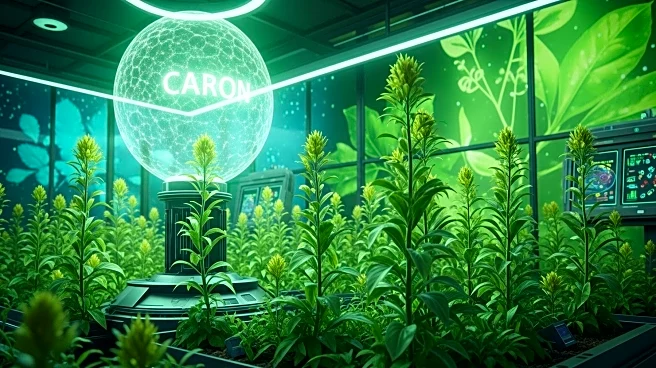What's Happening?
Researchers have developed a new method to increase carbon uptake in plants, potentially doubling their ability to absorb carbon dioxide and enhancing seed and lipid production. The study, published in Science, introduced a synthetic CO2 uptake cycle, known as the malyl-CoA-glycerate (McG) cycle, into Arabidopsis thaliana. This cycle works alongside the traditional Calvin-Benson-Bassham cycle, improving carbon fixation efficiency. The engineered plants showed significant growth, with increased leaf and seed numbers and higher lipid content, suggesting potential applications in agriculture and biofuel production.
Why It's Important?
This breakthrough in plant engineering could have far-reaching implications for agriculture and climate change mitigation. By enhancing carbon uptake and biomass production, these engineered plants could increase crop yields and oil production, contributing to food security and renewable energy sources. Additionally, the increased carbon sequestration capacity of these plants could play a role in reducing atmospheric CO2 levels, addressing climate change challenges. However, the long-term ecological impacts and stability of these modifications remain uncertain, necessitating further research.
What's Next?
Further research is needed to assess the long-term viability and ecological impact of the McG cycle in crop plants. Scientists will need to explore the potential for these modifications to be applied to other plant species and evaluate the stability of the genetic changes over successive generations. If successful, this technology could revolutionize agricultural practices and contribute to global efforts in carbon management and climate change mitigation.










